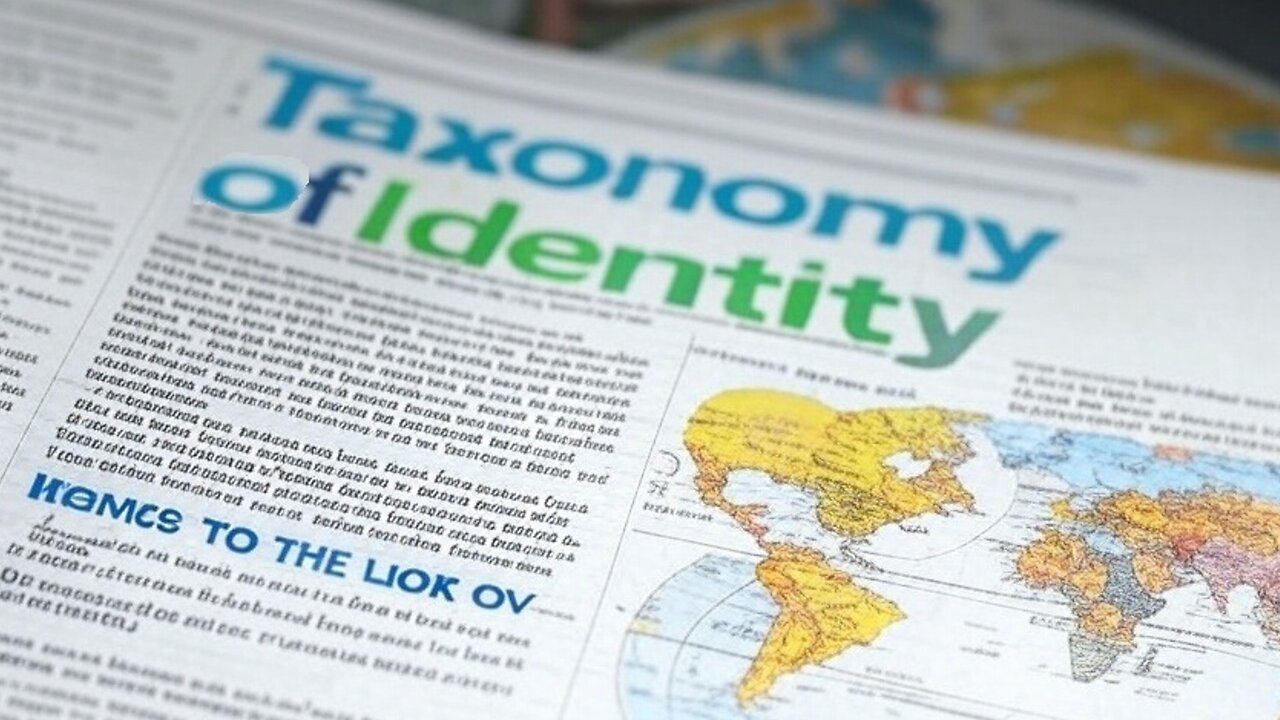Premium Only Content

Taxonomy of Identity: Decoding Descriptors Through Science and History
Explore the shifting value of identity terms like ancestry, tribe, and race. Why do scholars favor precise descriptors while everyday talk leans on nationality? This journey unravels the science and history behind human belonging, revealing why some terms shine in research but fade in daily life. Discover the hidden divide.
Ranked Descriptors with Definitions
Ancestry: The traceable lineage of individuals or groups, rooted in genetic markers like Scandinavian DNA or historical records like dynastic chronicles, providing a direct thread to human origins.
Tribe/Clan: A kinship-driven social group, such as the Maasai or Clan Gordon, defined by familial ties and traditions, offering a focused lens for genetic, archaeological, or historical study.
Ethnicity: A cultural collective, such as the Yoruba or Han Chinese, shaped by shared language, rituals, and customs, prioritizing lived identity over biological roots.
Heritage: The inherited backdrop of familial or ancestral past, such as Viking settlers in Orkney, blending genetic traces with historical narratives.
Diaspora: A dispersed population, like Armenians post-1915, maintaining cultural or genetic continuity, evidenced by migration or trade records.
Culture: The collective practices and beliefs of a group, such as Minoan art or the Islamic Golden Age, reflecting societal identity over individual ties.
Race: A historical grouping by physical traits like skin color, now seen as biologically imprecise due to greater intra-group variation.
Nationality: The legal bond to a state, such as Brazilian citizenship, tied to modern political frameworks rather than cultural or genetic depth.
Identity: The personal or communal self-definition, such as “Berliner,” fluid and subjective, shaped by individual choice or affiliation.
Read the full article at Real Free News
#IdentityExplained #AncestryVsTribe #EthnicityUnraveled #HumanBelonging #HistoryAndScience
-
 2:21:10
2:21:10
Badlands Media
7 hours agoDevolution Power Hour Ep. 386
117K13 -
 2:07:22
2:07:22
Inverted World Live
8 hours agoGiant Asteroid Skims Past Earth Today | Ep. 102
39K2 -
 3:11:00
3:11:00
TimcastIRL
5 hours agoTrump Kills 11 Narco Terrorists, Democrats Warn War With Venezuela Coming | Timcast IRL
161K141 -
 13:07
13:07
Robbi On The Record
3 days ago $5.09 earnedSweet Poison: The Big Fat Lie That’s Killing America
44.5K25 -
 LIVE
LIVE
Drew Hernandez
10 hours agoEPSTEIN VICTIMS SPEAK OUT & TRUMP DOUBLES DOWN
1,003 watching -
 1:36:41
1:36:41
FreshandFit
6 hours agoWe Are QUITTING YouTube...
51.9K33 -
 2:34:22
2:34:22
TheSaltyCracker
6 hours agoDrug Smugglers Blown Up 9-03-25
93.3K190 -
 3:12:59
3:12:59
VapinGamers
5 hours ago $1.05 earnedGrim Trials - Game Review/Playthru - Rougelight Dungeon Crawler - !rumbot !music
26.7K -
 2:47:55
2:47:55
Mally_Mouse
12 hours ago🎮 Let's Play!! -- Jak 2 pt. 16
50.9K2 -
 52:23
52:23
MattMorseTV
7 hours ago $16.87 earned🔴The Cartels are SCREWED.🔴
114K129